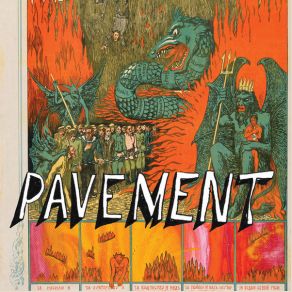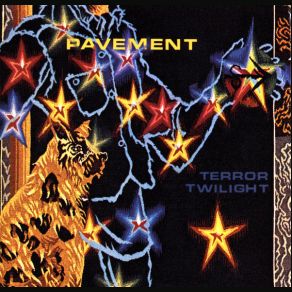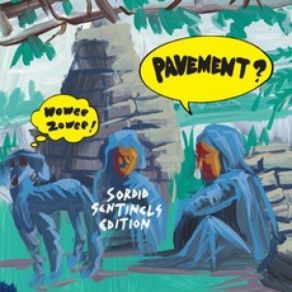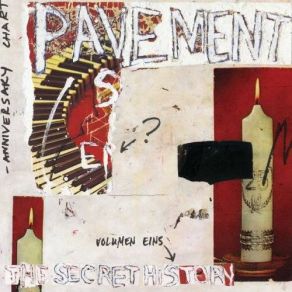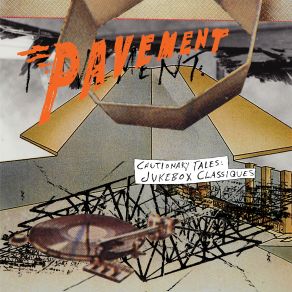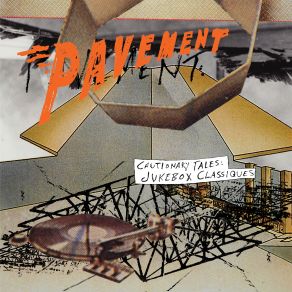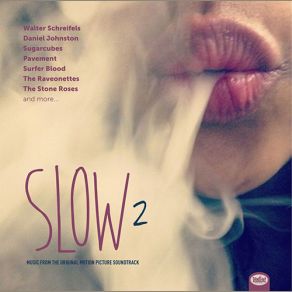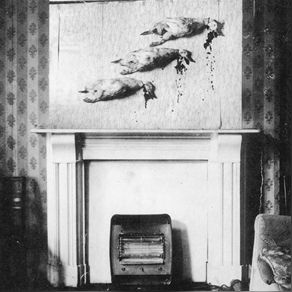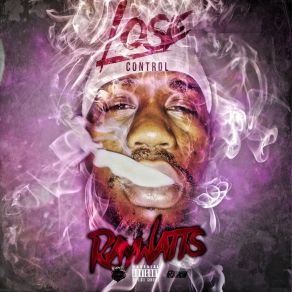Pavement
Wikimp3 information about the music of Pavement. On our website we have 53 albums and 47 collections of artist Pavement. You can find useful information and download songs of this artist. We also know that Pavement represents Alternative genres.
Biography
[Edit]With their fractured songs, unexpected blasts of feedback, laconic vocals, cryptic literate lyrics, and defiant low-fidelity, Pavement were one of the most influential and distinctive bands to emerge from the American underground in the '90s. Pavement, along with Sebadoh, were the leaders of the lo-fi movement that dominated U.S. indie rock in the early '90s. Initially conceived as a studio project between guitarists/vocalists Stephen Malkmus and Scott Kannberg in the '80s, Pavement gradually became a band during the early '90s. Along the way, their initial EPs and debut album, 1992's Slanted & Enchanted, earned a devoted following of musicians, indie fans, and critics. Before long, the group's aesthetics — a combination of elliptic, cryptic underground American rock, unrepentant Anglophilia, a fondness for white noise, off-kilter arrangements and winding melodies, songs that frequently had shifting titles, and literate, clever lyrics — were imitated by underground bands through America and Britain. By that point, Pavement had become an actual band, one with a notorious, acid-fried ex-hippie drummer called Gary Young. Young left the band in 1993 as the band made the move to clean up their sound, if not their sensibility, on 1994's Crooked Rain, Crooked Rain. Their revampment resulted in a near-hit with "Cut Your Hair," but the mainstream decided Pavement were too strange for their tastes and the band decided it preferred the underground, leaving the group as one of the most popular — and the most influential — American indie rock bands of the '90s.
Stephen Malkmus (vocals, guitar) had finished studying history at the University of Virginia and returned to Stockton, CA, when he formed Pavement with childhood friend Scott Kannberg (guitar, vocals) in 1989. Pavement released their first 7" EP, Slay Tracks: (1933-1969), by the summer of 1989. Recorded for 800 dollars at the small local studio Louder Than You Think — which was owned by Gary Young, a fortysomething drummer who appeared on the EP — and released on the duo's own indie label, Treble Kicker, Slay Tracks demonstrated sonic debts to the Fall, R.E.M., the Pixies, and Sonic Youth. While there were only a couple hundred copies pressed of the EP, it managed to work its way to several influential people within the underground industry, including British DJ John Peel. Furthermore, the EP, which was credited only to "S.M." and "Spiral Stairs," became something of an enigma, since it was supported by no press releases or information about the band. By the 1990 release of Demolition Plot J-7, the band had begun to forge these influences into its own signature sound. Pavement moved to Drag City Records and added Young as a member during the recording of Demolition Plot J-7, but the band didn't perform any concerts until after the 1991 release of Perfect Sound Forever.
During preparation for their first concerts in 1991, Pavement added bassist Mark Ibold and, in order to bolster Young's shaky timekeeping, a second drummer named Bob Nastanovich, who had attended college with Malkmus. The new lineup appeared on the band's first full-length album, Slanted & Enchanted, although the group didn't record any of the album as a full band; instead, it was pieced together by Malkmus and Kannberg. Before it was released on Matador Records in the spring of 1992, Slanted & Enchanted created extremely good word-of-mouth praise; before the album was even available promotionally, critics were lavishly praising it in the press. Initially, the band's following was based upon critics and fellow musicians, but soon word began to spread on the street as well. Pavement supported the album with their first national tour, and while it didn't reach many cities, it became notorious for the band's sloppy sound and Young's grandstanding. He would greet the audience at the door, shaking their hands; he would perform handstands during the show; he would hand out salads at the door; he would occasionally collapse drunk. Young was asked to leave the band during 1993; his last release with the group was the EP Watery, Domestic, which was released in the fall of 1992. He was replaced by Steve West, a friend of Nastanovich. After West joined the band, the band's early EPs were compiled on Drag City's 1993 collection Westing (By Musket and Sextant).
Pavement's sound cleaned up somewhat after Young's departure; it was a combination of having a steady drummer and recording in real studios. Some pundits predicted that Crooked Rain, Crooked Rain, the 1994 follow-up to Slanted & Enchanted, would be Pavement's breakthrough into the mainstream. To a certain extent, it was. The album debuted on the U.S. charts at 121 and "Cut Your Hair" became a Top Ten modern rock hit and MTV hit. But despite the album's overwhelmingly positive reviews, Crooked Rain simply expanded Pavement's cult dramatically, confirming their status as underground, not mainstream, stars. Following the release of Crooked Rain, Pavement recorded sporadically during 1994; Malkmus and Nastanovich also contributed to Starlite Walker, the full-length debut by the Silver Jews, which was led by their college friend David Berman.
Pavement returned with their third album, Wowee Zowee, in the spring of 1995. More sprawling and eclectic than either of its predecessors, the album proved once again that Pavement were a leader of the underground instead of alternative rock's Next Big Thing. Despite the mixed response Wowee Zowee received from critics — which sparked a Pavement backlash in the press that continued for the next two years — most of the group's die-hard fans embraced the album. The band also landed a spot on the fifth Lollapalooza, which featured likeminded artists such as Beck and Sonic Youth. Though it may have been financially lucrative, the gig proved frustrating for the band; sandwiched in the middle of the main stage's bill, Pavement found themselves playing to fewer people than they might have, had they headlined the second stage.
The group began 1996 with the release of the Pacific Trim EP and spent the rest of the year recording their fourth album with producer Mitch Easter. Released in early 1997, Brighten the Corners was seen as a return to the group's more accessible, Crooked Rain-like sound; it was greeted with positive reviews and debuted at number 70 on the American charts. After extensive touring in the U.S. and worldwide, Pavement took a break for the first half of 1998. That summer, among the bandmembers' off-duty activities, both Malkmus and Kannberg performed solo gigs: Malkmus introduced new Silver Jews and Pavement songs at the two L.A. dates he played with Scarnella (Nels Cline and the Geraldine Fibbers' Carla Bozulich's side project), while Kannberg played drums with Half Five Quarter to Six (an impromptu '80s cover band featuring other San Francisco-based musicians) at a charity event called One Night Stand. Kannberg also started his own label, Pray for Mojo (later renamed Amazing Grease), which featured bands like the psych-pop combo Oranger.
That fall, Pavement regrouped and recorded Terror Twilight with producer Nigel Godrich, whose intricate, polished style graced albums by Natalie Imbruglia, Beck, and, most famously, Radiohead. That group's guitarist, Jonny Greenwood, played harmonica on the album's sessions. When Terror Twilight arrived in the summer of 1999, it won uniformly positive reviews, but its bigger, cleaner sound and lack of any Kannberg songs made it feel suspiciously like a disguised Stephen Malkmus solo album. The Major Leagues EP did feature songs from Kannberg — which he recorded with Gary Young at Louder Than You Think — but this did little to dispel the breakup rumors Pavement had been dodging since Malkmus' solo gigs, in which he admitted that the bandmembers' desires to live outside of Pavement could spell the group's end. He announced that the band was indeed finished at their November 20, 1999, date at the London Brixton Academy: with a set of handcuffs hanging from his mic stand — which he said symbolized being a part of a band — Malkmus thanked Pavement's fans "for coming all these years."
However, the official word from the band and Matador Records was that Pavement were merely on hiatus. But, in the spring of 2000, word got out that both Kannberg and Malkmus were readying solo projects: Kannberg's, named the Preston School of Industry, reunited him with Gary Young; Malkmus' was initially called the Jicks, then rechristened Stephen Malkmus and the Jicks, and included drummer John Moen, formerly of the Dharma Bums and the Fastbacks, and bassist Joanna Bolme, who had also worked with the Minders. An interview with Malkmus in the November 2000 issue of Spin confirmed Pavement's breakup for once and all. Ibold, West, and Nastanovich also stayed busy during the group's "hiatus": Ibold started his own label, West toured and recorded with his project Marble Valley, and Nastanovich maintained his horse-racing tip sheet Lucky Lavender. Late in 2000, it was announced that Malkmus' solo album — which had the working title of Swedish Reggae — would be known simply as Stephen Malkmus, and that he and the Jicks would tour in the spring of 2001 with Elastica's Justine Frischmann joining on as an additional guitarist and Nastanovich as their road manager. Kannberg and his group also began playing dates in early 2001.
Despite the band's somewhat confusing and frustrating end, Pavement helped steer the course of '90s indie rock in a consistently intelligent, unpredictable — and even fun — direction. In late October of 2002, Matador released a massively expanded version of the seminal Slanted & Enchanted. The version contained an astounding 36 bonus tracks ranging from an entire live performance to revealing B-sides. A retrospective double-DVD set entitled Slow Century was welcomed concurrently. Matador then released a similarly expanded edition of Crooked Rain, Crooked Rain in 2004 and Wowee Zowee in 2006, all the more confirming Pavement's legacy as indie rock trailblazers. In 2009 the band announced a series of 2010 benefit shows in New York City's Central Park and the U.K.. ~ Stephen Thomas Erlewine & Heather Phares, Rovi
Title: Brighten the Corners: Nicene Creedence Ed.
Artist: Pavement
Genre: Rock, Indie Rock, Alternative
Title: Quarantine the Past - The Best of Pavement (Remastered)
Artist: Pavement
Genre: Rock, Indie Rock, Alternative
Title: Cautionary Tales: Jukebox Classiques (CD8)
Artist: Pavement
Genre: Alternative Rock, Indie Rock
Title: Terror Twilight: Farewell Horizontal (Deluxe Edition) (CD2)
Artist: Pavement
Genre: Indie Rock
Title: Terror Twilight: Farewell Horizontal (Deluxe Edition) (CD1)
Artist: Pavement
Genre: Indie Rock
Title: Cautionary Tales: Jukebox Classiques (CD5)
Artist: Pavement
Genre: Alternative Rock, Indie Rock
Title: Cautionary Tales: Jukebox Classiques (CD7)
Artist: Pavement
Genre: Alternative Rock, Indie Rock
Title: Cautionary Tales: Jukebox Classiques (CD9)
Artist: Pavement
Genre: Alternative Rock, Indie Rock
Title: Cautionary Tales: Jukebox Classiques (CD1)
Artist: Pavement
Genre: Alternative Rock, Indie Rock
Title: Cautionary Tales: Jukebox Classiques (CD4)
Artist: Pavement
Genre: Alternative Rock, Indie Rock
Title: Cautionary Tales: Jukebox Classiques (CD3)
Artist: Pavement
Genre: Alternative Rock, Indie Rock
Title: Cautionary Tales: Jukebox Classiques (CD2)
Artist: Pavement
Genre: Alternative Rock, Indie Rock
Title: Cautionary Tales: Jukebox Classiques (CD6)
Artist: Pavement
Genre: Alternative Rock, Indie Rock
Title: Crooked Rain, Crooked Rain: LA's Desert Origins
Artist: Pavement
Genre: Rock, Alternative Rock, Pop, Alternative, Indie
Collections
Title: At Home With the Groovebox
Genre: Electronica
Title: No Alternative
Genre: Pop
Title: Amateur
Genre: Alternative
Title: Kids In the Hall Brain Candy
Genre: Alternative
Title: A Rocking Time Mixtape: 2Min -
Genre: Ambient, Trip Hop, Electronica, Industrial, Hip Hop/R&B, Avant Garde Jazz, Rock, Alternative Rock, Blues Rock, Experimental Rock, Folk Rock, Garage Rock, Glam Rock, Indie Rock, New Wave, Psychedelic Rock, Punk, Post Punk, World Music, Country Rock, Pop, Pop Rock, Indie, Experimental
Title: Everything Is Nice (Disc 1)
Genre: Trip Hop, Hip Hop/R&B, Disco, Indie
Title: Halloween Mp3's Vol. 14 - Transylvanian Concubine
Genre: Rock
Title: Las 500 Mejores Canciones De La Historia (CD15)
Genre: Soul, Rock, Reggae, World Music, Pop
Title: Schoolhouse Rock! Rocks
Genre: Alternative Rock, Pop, Alternative
Title: Rock Top 600 Vol. 2 (CD1)
Genre: Rock
Title: Rock Top 600 Vol. 4 (CD1)
Genre: Rock
Title: Rock Top 600 Vol. 4 (CD2)
Genre: Rock
Title: NME Top 500 Songs Of All Time (CD5)
Genre: Rock
Title: John Peel's Festive 15
Genre: Rock
Title: We Love The 90 - The Real Party (CD4)
Genre: Rock, Dancefloor, Disco, Pop, Pop Rock
Title: I Shot Andy Warhol (Original Soundtrack)
Genre: Theatre/Soundtrack
Title: Slow 2 (Original Soundtrack)
Genre: Blues, Rock, Alternative Rock, Indie Rock, Punk, Alternative, Indie
Title: What's Up Matador (CD1)
Genre: Alternative Rock, Indie Rock
Title: What's Up Matador (CD2)
Genre: Alternative Rock, Indie Rock
Title: 100 Hits: Indie
Genre: Indie Pop
Title: Les 30 Ans Des InRocKuptibles (CD3)
Genre: Electronica, Alternative Rock, Indie Rock, Psychedelic Rock, Pop, Pop Rock
Title: 100 Greatest Alt-Rock Anthems (CD2)
Genre: Rock, Indie Rock, Punk Rock, Alternative
Title: 100 Greatest 90s Indie Classics (CD1)
Genre: Indie Pop, Indie Rock, Alternative
Title: 100 Greatest Alternative 90s (CD1)
Genre: Rock, Punk, Punk Rock, Metal, Alternative
Title: 100 Greatest 80s Indie Anthems 2021 (CD1)
Genre: Ethereal Wave, Rock, Alternative Rock, Grunge, Folk Punk, Reggae Fusion, Pop
Title: 100 Greatest 80s Indie Anthems (CD1)
Genre: Rock, Punk Rock, Alternative, Indie
Title: ’80s Indie Essentials 2021 (CD1)
Genre: Indie Rock, Alternative
Title: ’90s Indie Essentials 2021 (CD1)
Genre: Indie Rock, Alternative
Title: ’90s Indie Essentials 2021 (CD2)
Genre: Indie Rock, Alternative
Title: Dad Rock Essentials (CD2)
Title: The Alternative 1990s (Live) (CD1)
Genre: Rock, Punk Rock, Alternative, Indie
Title: Be Kind Rewind To The 90's (CD2)
Genre: Hip Hop/R&B, Rap, Rock, Punk Rock, Dancefloor, Pop, Dance Pop
Title: Hi-Res Masters: Indie Rock Hits 2023 (CD1)
Genre: Alternative, Indie
Featuring albums
Title: I Shot Andy Warhol (Music From And Inspired By The Motion Picture)
Artist: Various Artists
Genre: Pop
















